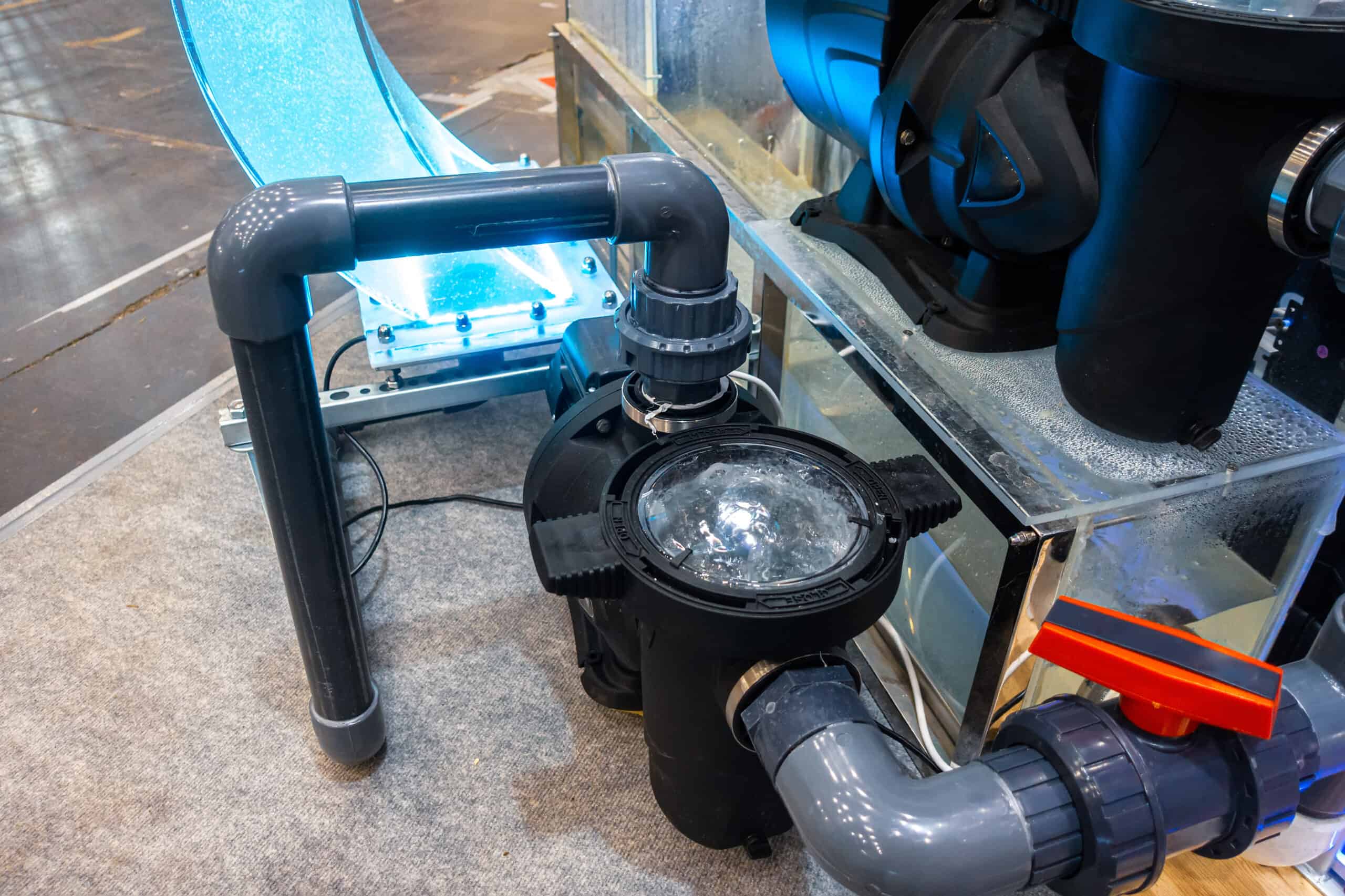The general consensus regarding a pool pump is that it should be run during the day when it’s sunny and when you tend to use the pool. In fact, some people back in the day used to run their pump 24/7 while the pool was open since timers weren’t prevalent and they couldn’t be bothered walking back and forth manually turning the pump on and off each day.
But modern chlorinators have timers, phone apps and other handy features that you can use to set or remotely operate your pump that you can take advantage of.
Plus, time of use electricity charging is increasing, meaning that many jurisdictions charge more for power during the peak periods (during the weekdays, typically) and less during off peak periods (evenings, weekends and stat holidays, typically). This means you can potentially save money by running your pump during off peak times.
Below, we’ll explain what pool companies generally say about running your pump and how you can test this theory to potentially save yourself some money.
What pool experts tell you
Pool experts generally say that it’s better to run a pool pump during the day, when the sun is shining and the pool is being used. This allows the pump to filter out any debris or contaminants that may have entered the pool during use, and also circulates the pool water, which can help prevent algae growth.
It also means that chlorine is being produced by the chlorinator during the hottest time of day and when the pool tends to be in use and needs chlorine production.
Running the pump at night may be more energy-efficient if you live in an area with time of use electricity, but it may also lead to less effective filtration and potential issues with water chemistry.
What you can try to do
While I agree that running the pool pump while using the pool makes sense, in my experience, I have successfully switched to mostly running it at night during off peak electricity times.
Where I live, we get charged less for electricity during off peak periods in the evening and on weekends. So I set the pool pump timer to run during these times.
It has significantly reduced our electricity bill.
You generally need to run your pool pump 8-10 hours per day, give or take. Certainly your pool usage and local weather conditions will determine this.
But if you live in an area where electricity is priced differently during the day, why not experiment and see if you can structure your pump time around it? That’s what I did and I haven’t noticed a difference.
In my case, off peak periods includes all weekends so I tend to run the pump a bit during the day at that time since electricity is at the lowest rate all weekend and since we tend to use the pool at that time.
Final thoughts
If you get charged differently for electricity during various times of the day, it might be worth experimenting to see if you can set your pool timer and run your pump during these times to save money.
At a minimum, you can familiarize yourself with your pool’s needs and determine how many hours per day your pump needs to be run to keep chemicals in line and tracking where they should be.

